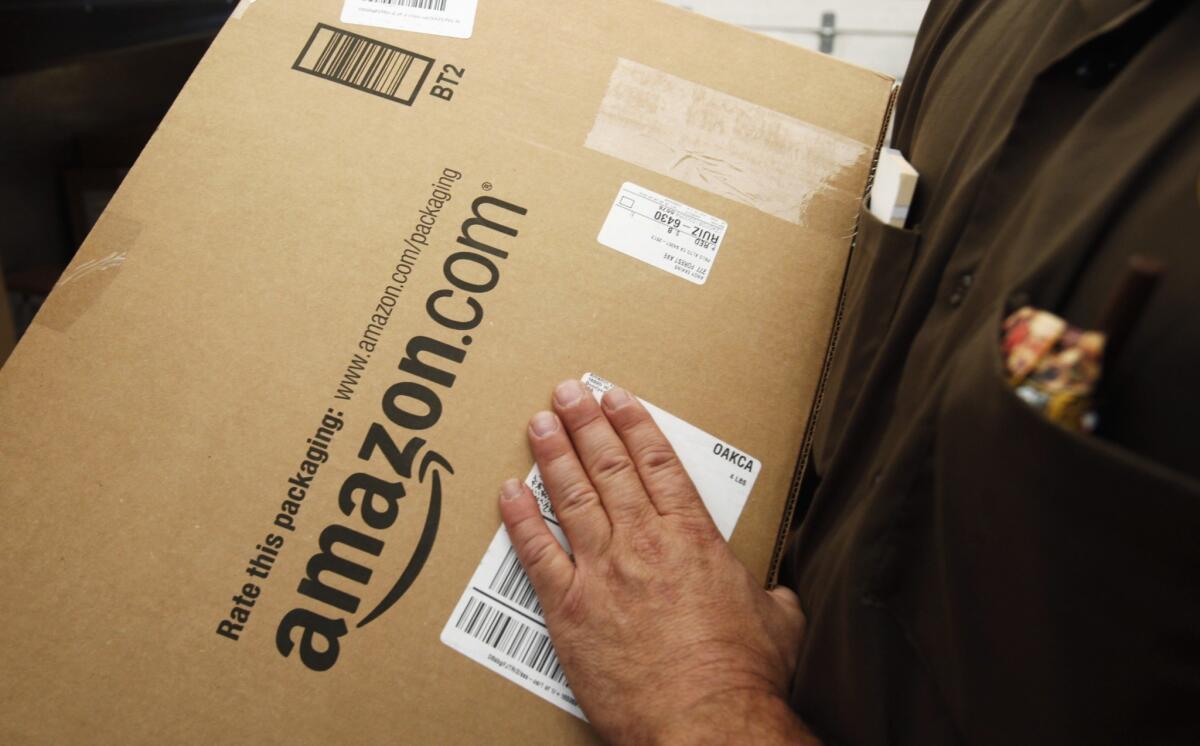Internet sales tax bill advances, but final Senate passage delayed

- Share via
WASHINGTON – The Senate on Thursday failed to pass bipartisan legislation that would allow states to collect sales taxes from larger Internet retailers, but the bill cleared a key procedural hurdle and is on track for approval after lawmakers return from a recess.
Momentum has been building for the Marketplace Fairness Act, which is strongly supported by most state and local governments and traditional brick-and-mortar retailers. But opposition from some online retailers, led by EBay Inc., and a small group of senators largely from states that do not have sales taxes derailed the legislation temporarily.
The Senate voted 74 to 20 on Monday to begin considering the bill, and supporters anticipated it would easily pass this week.
But attempts to broker a deal with opponents led by Sens. Max Baucus (D-Mont.) and Ron Wyden (D-Ore.) were unsuccessful. With lawmakers eager to leave town for the scheduled break, Senate Majority Leader Harry Reid (D-Nev.) forced a vote Thursday to cut off debate.
The procedural measure, which needed 60 votes, passed 63 to 30.
Reid said a vote on final passage of the bill would take place May 6. The measure is expected to be approved then.
The bill would get around a 21-year-old Supreme Court decision that carved out an exemption for retailers, such as mail order catalog firms, with no physical presence in a state from being forced to collect sales taxes.
Consumers are supposed to pay the tax on any purchases from those companies to their state, but most do not.
The exemption has been exploited by many Internet retailers and the growth of electronic commerce has cost state and local governments billions of dollars of sales tax revenue. Traditional retailers also have complained they face unfair competition because they must collect sales tax from their customers.
California and a few other states have fought back, expanding the definition of an in-state presence to begin collecting sales tax from some large online retailers, notably Amazon.com.
The federal legislation, which Amazon supports, would allow states to expand their collection to companies with no in-state presence unless they have less than $1 million annually in online and other remote sales.
ALSO:
Weekly jobless claims tumble to 339,000, near five-year low
Mortgage rates fall for 4th straight week; 15-year at record low
N.Y. real estate firm soon to be downtown L.A.’s biggest landlord
More to Read
Inside the business of entertainment
The Wide Shot brings you news, analysis and insights on everything from streaming wars to production — and what it all means for the future.
You may occasionally receive promotional content from the Los Angeles Times.











